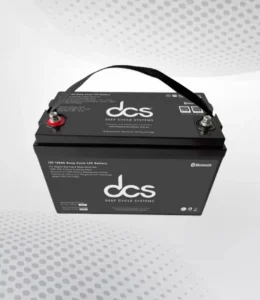Are you ready to power your adventures with a reliable 180Ah 12V battery? Whether hitting the road in an RV, sailing the open seas, or living off-grid, choosing the correct battery is crucial for keeping everything running smoothly. But with so many options on the market, how do you decide which one will meet your energy needs? Understanding your power requirements and what features to look for can make all the difference. This guide will walk you through essential considerations and comparisons between different types of batteries.
Assessing Your Power Requirements: How to Choose the Right 12V Battery
Determining your power requirements is the first step in selecting the correct 12v battery. Start by listing all the devices you plan to power, including their wattage and how long you intend to use them daily. This information will help you calculate your total energy consumption.
Next, consider any additional factors that may affect your usage. For example, if you’ll be using appliances intermittently or during peak hours, it’s essential to account for those variations in demand. Understanding these needs allows for a more tailored battery choice.
Think about future expansions. If you anticipate adding more devices or increasing usage, opt for a battery with extra capacity. This foresight can save you from potential headaches as your energy needs evolve.
Top Features to Look for When Choosing a 12V Battery
The first feature to consider when selecting a 12V battery is its capacity. Look for batteries that clearly state their amp-hour ratings, indicating how long they can provide power at a specific rate. A higher rating generally means longer usage times for your devices.
Next, evaluate the type of battery chemistry. Lead-acid and lithium-ion are popular choices, each with distinct advantages. Lithium-ion batteries are lighter and more efficient but come at a higher price. Weigh these factors according to your energy needs and budget.
Compatibility is another crucial aspect to consider. Ensure the battery you choose aligns with your system’s voltage requirements and fits within available space constraints. Double-check any additional features, like built-in protection circuits or monitoring systems, for added safety and efficiency in operation.
12V Battery Basics: Understanding Capacity, Chemistry, and Compatibility
Understanding 12V battery basics starts with capacity, measured in amp-hours (Ah). A battery indicates it can deliver a current of 180 amps for one hour or 90 amps for two hours. Knowing your energy needs helps you choose the suitable capacity to ensure reliable performance.
Next, consider battery chemistry. Lead-acid and lithium-ion are popular options. Lead-acid batteries offer affordability and reliability but are heavier and more prominent. Lithium batteries are lighter, have longer lifespans, and provide faster charging times but come at a higher price point.
Compatibility is also crucial when selecting a 12V battery. Always check if the battery fits into your existing system without modifications. Look at voltage levels and connection types to ensure seamless integration with devices like solar panels or RV systems. This compatibility ensures optimal performance from your chosen energy source.
Comparing Lead-Acid and Lithium: Which 12V Battery Is Best for You?
Understanding the differences between lead-acid and lithium batteries is crucial when choosing between them. Lead-acid batteries are often favoured for their lower initial cost. They have been around for decades and are reliable in many applications, particularly vehicles and emergency power systems. However, they can be heavy and less efficient in energy usage.
On the other hand, lithium batteries offer several advantages that make them a better choice depending on your needs. They are lighter, have higher energy density, and typically have longer lifespans than their lead-acid counterparts. Additionally, lithium batteries can handle deeper discharges without significant damage.
However, the upfront investment is usually higher with lithium options. You must weigh these factors based on your specific applications—whether you need portability or longevity—to determine which 12v battery suits you best.
Maximizing Performance: Tips for Choosing the Right 180ah for Your System
Choosing the correct 180ah can significantly enhance your system’s performance. Start by ensuring that your selected battery aligns with your energy consumption needs. Calculate how much power you’ll require for your devices and choose a battery with enough capacity without being overly large.
Next, consider the type of chemistry in your chosen battery. Lithium batteries typically offer superior efficiency and longevity compared to traditional lead-acid options. They charge faster, discharge more effectively, and have a higher cycle life, making them an excellent choice for demanding applications.
Always check compatibility with your existing system components. Ensure that the voltage ratings match and look into any requirements or limitations from regulators or control systems you use. This will help avoid issues down the road while maximizing overall performance.
How to Evaluate the Lifespan of 12V Batteries for Your Energy Needs
Evaluating the lifespan of 12V batteries is crucial for understanding their long-term value. Begin by examining the manufacturer’s specifications, which typically provide an estimated cycle count and depth of discharge limits. These factors significantly influence how long a battery will last under regular use.
Next, consider your usage patterns. Frequent deep discharges can shorten a battery’s life. For optimal longevity, aim to keep your discharges within recommended levels. Regularly tracking performance metrics helps identify any dips in efficiency that could indicate impending failure.
Environmental conditions also play a vital role in battery lifespan. Extreme temperatures—both hot and cold—can negatively impact performance. By monitoring these variables and keeping your batteries well-maintained, you can ensure they serve you effectively over time while meeting your energy needs efficiently.
Factors Influencing the Cost of 12V Batteries: Making an Informed Choice
Several key factors come into play when considering the cost of a 12V battery. First, the type of chemistry used in the battery significantly impacts price. Lead-acid batteries tend to be more affordable upfront but may require more frequent replacements than lithium options, which often have higher initial costs but longer lifespans.
Another crucial factor is capacity and performance specifications. A higher amp-hour rating typically means a more significant investment. However, investing in a model that fits your energy needs can save time by reducing replacement frequency and maintenance costs.
Brand reputation also plays a role in pricing. Established manufacturers often charge more due to their reliability and warranty offerings. It’s essential to balance brand trustworthiness with budget constraints while ensuring you select the best option for your requirements.
Choosing the Right 12V Battery for RV and Marine Applications
Durability is key when selecting a 12V battery for RV and marine applications. These batteries must withstand vibrations, moisture, and temperature fluctuations typical in mobile environments. Choosing a robust design can prevent unexpected failures during your adventures.
Consider your appliances’ power demands. If you’re using several devices simultaneously, opt for a higher capacity, like the 180-Ah model, to ensure you have enough power reserve. Assessing how long you’ll be off-grid helps determine whether you need additional capacity or multiple batteries connected in parallel.
Weight and size also matter significantly. Space in RVs and boats can be limited; therefore, finding compact yet powerful options is essential. Lithium batteries offer high energy density but come at a premium price. Weigh these factors against your budget to make an informed decision that aligns with your travel lifestyle.
12V Batteries for Off-Grid Living: Finding the Right Match for Your Needs
When it comes to off-grid living, having a reliable power source is essential. A 12v battery can be an excellent choice for your energy needs. It provides the capacity to run appliances and lights without interruption while ensuring you reserve enough for days with low sunlight or wind.
Consider your lifestyle’s specific demands. If you rely on refrigeration or other heavy-duty devices, you’ll need a battery that meets capacity and has excellent discharge rates. Lithium options often excel in this area due to their efficient energy use and lightweight design.
Don’t overlook compatibility with existing solar setups or generators. Ensuring your battery works seamlessly with other components will optimize performance and longevity. These aspects will help you find the right match for sustainable living off the grid.
Charging and Maintenance Considerations When Selecting a 12V Battery
Proper charging and maintenance are vital for maximizing the lifespan of your 12v battery. Understanding the type of charger compatible with your battery chemistry is crucial. For instance, lithium batteries require a specific charge profile compared to lead-acid batteries. Always use an intelligent charger that can adjust based on your battery’s needs.
Regularly checking fluid levels is essential for flooded lead-acid batteries. To maintain optimal performance, ensure terminals are clean and free from corrosion. A simple wipe-down with baking soda and water can do wonders for conductivity.
Temperature also plays a significant role in battery health. Extreme heat or cold can affect charging efficiency and overall capacity. To keep your 12V battery performing at its best, store it in an environment where temperatures remain stable, ideally between 32°F (0°C) and 80°F (27°C).
Eco-Friendly Options: Choosing a Sustainable Battery 180
As environmental concerns grow, the demand for eco-friendly batteries is rising. When considering a Battery 180, consider options made from sustainable materials designed to minimize environmental impact. Lithium-ion batteries often stand out due to their higher efficiency and longer lifespan than traditional lead-acid models.
Another great choice is using recycled components in your battery. Many manufacturers now offer products crafted from repurposed materials, which help reduce waste and conserve resources. These options perform well and contribute positively to global sustainability efforts.
Don’t overlook brands that prioritize ethical production practices as well. Supporting companies committed to reducing carbon footprints ensures your investment aligns with eco-conscious values while providing reliable power for your needs. Making informed choices can significantly influence both performance and planetary health.
Conclusion
Choosing the correct 180ah 12v can significantly impact your energy needs and overall efficiency. It’s essential to consider various factors, from power requirements to battery chemistry. Each application has unique demands that influence what type of battery will serve you best. As you navigate your options, remember to assess capacity and compatibility with your systems. A well-chosen battery can enhance performance, especially in RVs or off-grid setups where reliability is crucial.
FAQs
What is the best type of 12v battery for my needs?
The best type depends on your application. Deep-cycle lead-acid batteries offer durability for RVs and marine use. However, lithium batteries provide lighter weight and longer lifespan if you need more efficiency in off-grid situations.
How long will a 180Ah 12V battery last?
Lifespan varies based on usage, maintenance, and charging practices. Properly maintained lithium batteries can last up to ten years or more, while lead-acid types typically last around three to five years with regular care.
Can I mix different types of batteries in one system?
Mixing different chemistries (like lead acid and lithium) is not advisable due to differences in charging requirements and discharge rates. Always try to keep similar types together for optimal performance.
| Related Business Listings |
| Directory Submissions |
| Regional Directory |




